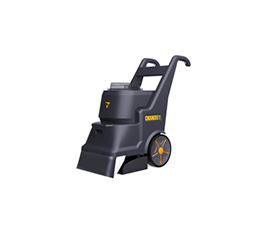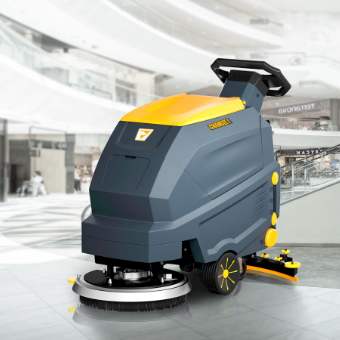A propos de l'auteur:
Écrit par Chancee. Votre fabricant d'équipement de nettoyage de confiance
Chancee Technology est une usine OEM et ODM leader responsable de la fabrication d'équipements de nettoyage pour des marques renommées telles que Yangzi et Royalstar. Avec un accent particulier sur les solutions de nettoyage industrielles et commerciales.
Avec une forte présence en Chine, Chancee opère à partir de 4 bases de production tentaculaires, s'étendant sur plus de 300 000 mètres carrés. L'entreprise propose une vaste gamme de produits, notamment des autolaveuses, des balayeuses, des aspirateurs, des nettoyeurs haute pression, des outils de nettoyage et des détergents, totalisant plus de 1 000 articles de qualité dans diverses catégories.
Que vous ayez besoin de solutions de nettoyage de pointe pour des applications industrielles ou commerciales, Chancee Technology est votre partenaire de confiance pour offrir une qualité, une innovation et une fiabilité supérieures dans le domaine de la fabrication d'équipements de nettoyage.

In the realm of modern cleaning equipment, battery-powered floor cleaners have revolutionized the efficiency and convenience of maintaining clean spaces. Whether for commercial establishments, healthcare facilities, or even homes, these electric floor cleaners offer versatility and power. However, selecting the right battery is crucial to ensure uninterrupted operation and optimal performance. Here’s a comprehensive guide on how to choose the best battery for your floor cleaning machine.
Understanding Battery Types
Lithium-Ion Batteries: Known for their high energy density and longer lifespan, lithium-ion batteries are the preferred choice for most electric floor cleaners. They offer consistent power output throughout the cleaning cycle and are generally lighter than other battery types, making the machines more maneuverable.
Lead-Acid Batteries: These batteries are more traditional and are still used in some floor cleaning machinery, especially larger industrial models. They are known for their robustness and lower initial cost but tend to be heavier and require more maintenance compared to lithium-ion batteries.
AGM (Absorbent Glass Mat) Batteries: A type of lead-acid battery, AGM batteries are sealed and maintenance-free, offering better resistance to vibration and spillage. They are often chosen for their reliability in demanding environments.
Factors to Consider
Battery Life: The runtime of the battery is critical, especially for commercial settings where continuous cleaning is essential. Lithium-ion batteries typically offer longer runtimes and quicker recharge times compared to lead-acid options.
Charge Time: How quickly the battery can be recharged between uses impacts operational efficiency. Fast-charging lithium-ion batteries can significantly reduce downtime compared to slower-charging lead-acid batteries.
Weight and Size: For maneuverability and ease of handling, consider the weight and size of the battery. Lithium-ion batteries are generally lighter and more compact than lead-acid batteries, contributing to easier operation and storage.
Durability: The battery should withstand frequent charging and discharging cycles without significant degradation in performance. Lithium-ion batteries typically have a longer cycle life compared to lead-acid batteries.
Compatibility: Ensure that the battery is compatible with your specific floor cleaning machine model. Different machines may have varying power requirements and battery configurations.
Choosing the Best Battery
When selecting a battery for your floor cleaning machine, prioritize reliability and efficiency:
Evaluate Operational Needs: Consider the size of the area to be cleaned, the frequency of use, and whether the machine will be used continuously throughout the day.
Compare Battery Specifications: Look at the voltage, capacity (measured in ampere-hours, Ah), and cycle life of each battery option to determine which best meets your operational requirements.
Read User Reviews: Feedback from other users can provide insights into real-world performance, reliability, and any potential issues with specific battery models.
Consider Total Cost of Ownership: While lithium-ion batteries may have a higher initial cost, they often provide lower long-term costs due to reduced maintenance and longer lifespan compared to lead-acid batteries.
Conclusion
Investing in the best battery for your floor cleaning machine is essential to maximize efficiency and maintain operational continuity. By understanding the different battery types, considering key factors like battery life and charge time, and evaluating specific operational needs, you can confidently choose a battery that enhances the performance and longevity of your electric floor cleaner. Whether for commercial floor cleaning equipment or residential electric floor cleaners, selecting the right battery ensures reliable and effective cleaning results every time.














